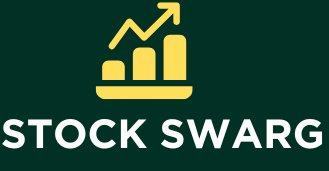
Introduction to Gsol Stock
Gsol is a prominent player in the technology sector, known for its innovative solutions that cater to various market needs. Established in the early 2000s, the company has steadily built its reputation on providing cutting-edge products and services aimed at enhancing operational efficiency for businesses across different industries. Gsol’s core business operations encompass software development, data analytics, and cloud computing services, which position it well within the evolving technological landscape.
The company’s mission statement emphasizes its commitment to driving digital transformation for its clients, enabling them to harness the power of technology in an increasingly competitive market. Over the years, Gsol has established itself as a reliable partner for organizations looking to modernize their operations, focusing on sectors such as healthcare, finance, and e-commerce. This diversified approach not only strengthens Gsol’s market positioning but also helps mitigate risks associated with dependence on a single industry.
In recent developments, Gsol has expanded its product offerings and ventured into artificial intelligence (AI) and machine learning (ML), signaling its intent to remain at the forefront of technological advancements. These strategic moves have garnered attention from investors, leading to discussions regarding Gsol stock and its potential for growth. Moreover, Gsol has maintained a strong presence in the stock market, with its performance trends over the past few years reflecting a mixture of achievements and challenges. Such fluctuations are often influenced by both internal developments and broader market conditions, making an in-depth analysis of Gsol stock and its performance essential for investors and stakeholders alike.
Financial Performance and Key Metrics
Gsol has demonstrated a consistent trajectory of growth in its financial performance, which is critical for potential investors assessing the company’s viability. A primary indicator of this growth is the company’s revenue growth over the past fiscal periods. The latest quarterly report shows a year-over-year revenue increase of 15%, significantly outpacing the industry average of 8%. This impressive growth rate highlights Gsol’s ability to expand its market share and capitalize on emerging opportunities within its sector.
Profitability is another essential metric in evaluating Gsol’s financial health. The company reported a net profit margin of 12%, which is commendable when compared to the industry norm of 10%. This signifies that Gsol is not only generating revenue effectively but also managing its operational costs efficiently. The improvement in margins can be attributed to strategic initiatives aimed at enhancing productivity and reducing overheads, showcasing management’s effectiveness in navigating competitive pressures.
Earnings per share (EPS) is a crucial measure that investors pay close attention to when assessing a stock’s value. Gsol has experienced a robust increase in EPS, up to $2.35 from $1.95 in the previous year. This growth in earnings not only reflects Gsol’s operational efficiency but also enhances its attractiveness as an investment, as it indicates a potentially higher return for shareholders.
The price-to-earnings (P/E) ratio stands at 22, which is slightly above the industry average of 20. While a higher P/E ratio might suggest that Gsol’s stock is overvalued, it is essential to consider the company’s growth trajectory and earnings potential. Investors often are willing to pay a premium for stocks with strong growth prospects, suggesting Gsol may be positioned well for future performance in the market. Overall, these key metrics showcase Gsol’s current financial health and depict a compelling case for investment consideration.
Market Trends and Competitive Landscape
The stock market is influenced by numerous dynamic factors and trends that can affect the performance of individual stocks, including Gsol. One significant trend affecting Gsol is the rapid emergence of new technologies within its sector, leading to the need for adaptation and innovation. As digital solutions gain traction, companies like Gsol must invest in research and development to maintain a competitive edge. Analyzing the adoption rates of these technologies reveals a consumer shift toward more sophisticated and integrated services, indicating that Gsol must also evolve to meet changing demands.
Additionally, shifts in consumer behavior play a crucial role in shaping the overall market landscape. Increased awareness pertaining to sustainability and ethical business practices influences buying decisions, compelling companies to align their offerings accordingly. Gsol’s marketing strategies must incorporate these insights to effectively engage the modern consumer, thus maintaining its market position against competitors.
Regulatory changes also impact the operations of Gsol and its counterparts. These changes can introduce new compliance requirements that may challenge the company’s operational efficiency and cost management strategies. Monitoring the regulatory environment is vital for Gsol as it can either facilitate or hinder its market growth.
When considering Gsol’s competitors, it is essential to conduct a thorough competitive analysis. Identifying key industry players and understanding their market share allows Gsol to strategize effectively. Currently, Gsol holds a moderate share in the marketplace, but it faces challenges from more established competitors with greater resources. Nevertheless, Gsol has strategic advantages, such as its commitment to innovation and customer service. Therefore, staying attuned to market trends and continuously evaluating its competitive position will be fundamental for Gsol to thrive in an evolving landscape.
Future Outlook and Investment Considerations
The future outlook for Gsol stock appears intriguing, presenting a series of growth opportunities along with some inherent risks that potential investors should consider. Analysts have projected a cautiously optimistic growth trajectory, attributed largely to the company’s innovative strategies and commitment to expanding its market presence. As the technology sector continues to evolve, Gsol is well-positioned to leverage its cutting-edge solutions to capture a larger market share.
One of the most promising aspects of Gsol’s future is its ongoing investment in research and development. By prioritizing innovation, the company aims to enhance its product offerings, thereby attracting a more extensive customer base. Furthermore, collaboration with strategic partners is anticipated to open new avenues for growth and facilitate the introduction of groundbreaking technologies. This collaborative approach is expected to contribute significantly to Gsol’s revenue streams in the coming years.
However, potential investors must remain cognizant of the risks that accompany investment in Gsol stock. Market volatility, competitive pressures, and regulatory changes could pose challenges that may impact the stock’s performance. Analysts suggest that staying updated on industry trends and global economic conditions is crucial for making informed investment decisions. Additionally, investors should consider the implications of macroeconomic factors such as inflation rates and interest rates which could influence market sentiment toward Gsol stock.
Upcoming catalysts such as earnings reports, product launches, and shareholder meetings are anticipated to influence stock price movements significantly. Analyst ratings and expert opinions indicate that a vigilant approach towards these developments is warranted. By integrating this information, potential investors can better navigate their Gsol stock investments. Altogether, combining opportunity assessments with an understanding of risk factors may facilitate more strategic investment choices in Gsol stock moving forward.


